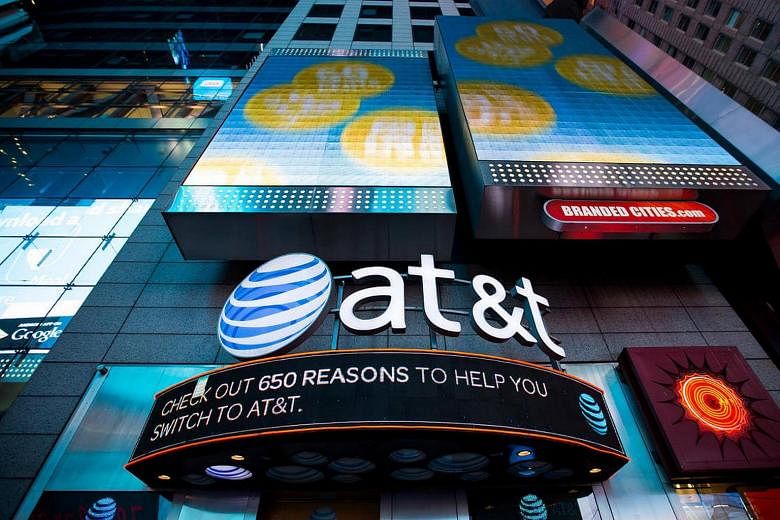WASHINGTON • AT&T's planned US$85.4 billion (S$119 billion) takeover of Time Warner mirrors Comcast Corp's successful acquisition of NBCUniversal, but the latest pairing faces a potentially rockier path in Washington as the Democratic and Republican presidential nominees both express suspicion of blockbuster deals.
While the Comcast-NBC deal won approval from regulators in 2011 with conditions aimed at protecting competition, AT&T faces a new landscape after a spate of high-profile merger challenges by antitrust watchdogs and a new administration just months away.
"This is such a big deal in a set of markets that are already very concentrated in which there are already real concerns about consumer abuses," said law professor and antitrust specialist Chris Sagers at Cleveland State University.
AT&T chief executive Randall Stephenson, after acquiring DirecTV last year, is transforming the Dallas-based phone company into a media and entertainment giant. Buying Time Warner would give AT&T - already a top supplier of pay-TV, mobile phone and home Internet services - premium entertainment content including HBO, professional basketball and the Cartoon Network to offer its millions of subscribers.
Even though the deal would combine programming and distribution rather than two direct competitors, the takeover still raises potential antitrust problems, said Mr John Bergmayer, senior counsel at Public Knowledge, a Washington-based policy group. AT&T could make it hard for competitors to get Time Warner programming, hoping to drive customers to its own platforms, while DirecTV could decline to carry rival programming.
"If you're just a video distributor that doesn't own programming, you just want the best programming. But if you own programming, the thumb is going to be on the scale for your stuff as opposed to that of competitors because it's cheaper for you and you make more money off of it from ads," Mr Bergmayer said.
Similar concerns were raised by the Justice Department and the Federal Communications Commission in the Comcast-NBC deal.
Officials said the deal gave the cable company an incentive to disadvantage competitors by denying them access to NBC programming or raising their licensing fees. Whether Comcast's pay-TV rivals refused to buy the programming or agreed to pay the higher fees, Comcast would benefit from weakening its competitors. Higher licensing fees would also induce customers to switch to or stay with Comcast, officials said.
BLOOMBERG

